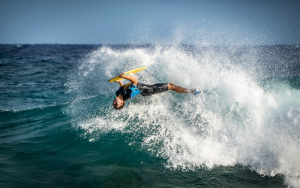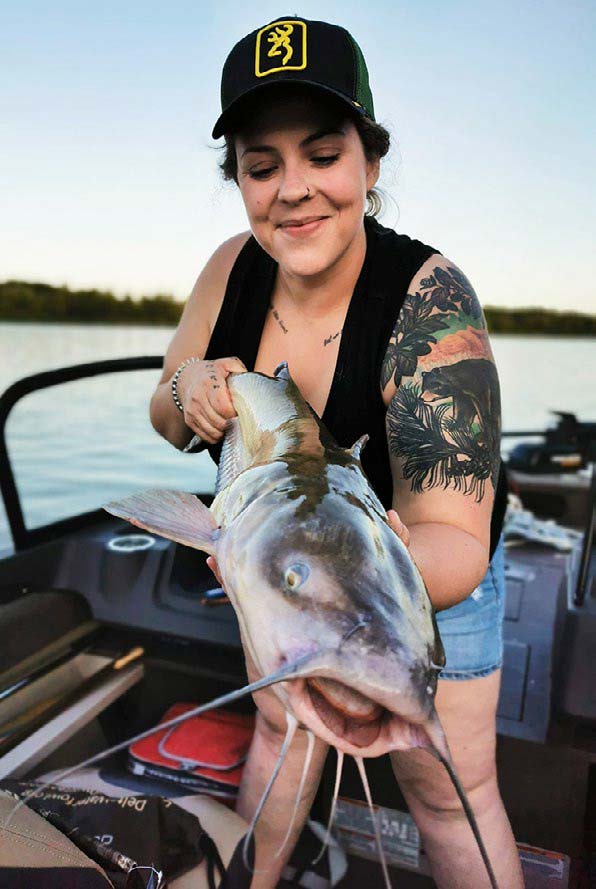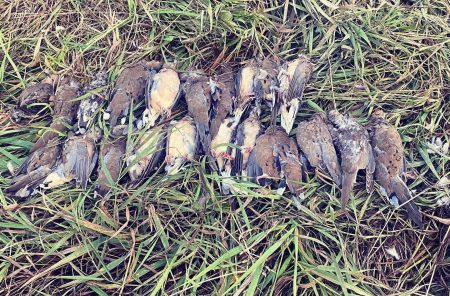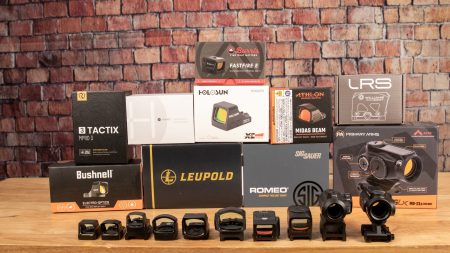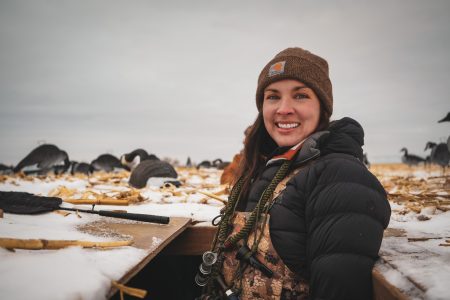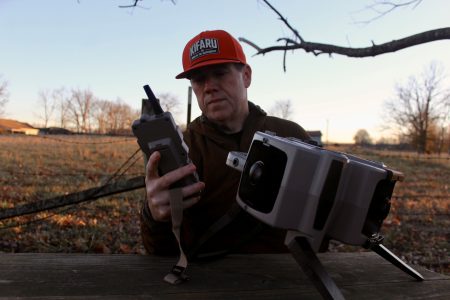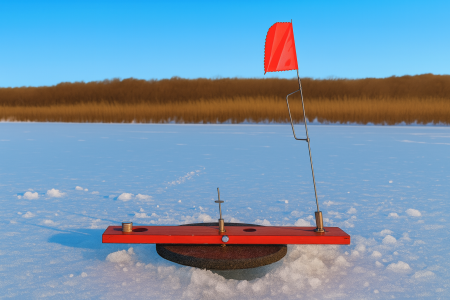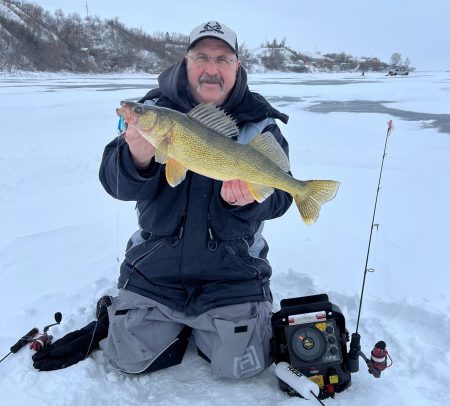There’s no question: Whether you choose fishing, hunting, foraging or trapping, becoming a mentor is one of the most rewarding activities an established outdoorsman can pursue.
There aren’t a lot of feelings that surpass witnessing someone’s excitement as they learn and achieve their goals. But where should a potential mentor begin? Check out the following information for some basic tips to help you build a roadmap to mentorship.
Who Mentor?
Before you start your journey, it is important to consider the type of person you want to teach and the type of teacher you strive to emulate. Being honest with yourself about the amount of time and effort you are able to contribute is key when considering mentorship. Think about these aspects:
- Are you willing to provide equipment and transportation?
- Do you have time for a long-term commitment?
Not all mentoring opportunities are equal, and some may require much more than others.
Mentoring youth is an extremely rewarding and exciting activity, but it also requires a lot of investment. Remember that many youths who are looking for mentors may also need rides to and from activities. They may need to borrow gear. They may not have parents who can devote those resources. If a mentor isn’t prepared to step up and go the extra mile, they may find themselves in a situation where they are inspiring someone who isn’t able to continue.
Therefore, looking at youth mentorship as a long-term commitment is key. Some organizations partner a mentor and mentee and support them for years. Additionally, some organizations may require background checks or other safety precautions before allowing mentors to work with children. It’s important to keep in mind that youths may also have less general experience than other age demographics do, so it may take special effort to provide background information and teach basic skills, if needed.
Next Age Level Up
For mentors with a bit less time, those aged 18 to 35 are a rapidly developing outdoor demographic. These folks have their own income, some free time, and can provide their own transportation, which puts much less onus on you. They may also have some existing skills, which can take a bit of pressure off you as a teacher. Deep-rooted habits can also create a unique challenge for a mentor, so be open-minded, flexible and communicative while you’re working with adults. Remember that this age range thrives off of being empowered rather than being instructed.
Not A Lot of Time?
Maybe you are someone who loves to pass on knowledge, but you have very little spare time. Perhaps one-off events through a club can provide the best option for you to mentor. Many organizations (such as Delta Waterfowl, SCI, Pheasants Forever and fish and game clubs) have regular events to try to recruit new members to carry on the outdoor lifestyle and traditions.
They sometimes offer mentored hunts, free fishing days and workshops. These happen throughout the continent and these groups always need volunteer help. Whether it’s putting on a duck-calling seminar or tying lures at an ice-fishing event, these situations can be perfect opportunities for a mentor who has little time to spare.
Also, maybe you are someone who is great at certain aspects of your hobby but not as confident in other areas of it. Structured events may allow you to teach what you are confident in and leave the rest to another expert. Check out your local outdoor conservation groups to see about getting involved. These groups may also offer things like event insurance and liability waivers. That’s something that provides extra security for mentors and mentees alike, an important aspect especially when working with youths. The groups can also provide a structured system, which can take some of the organizational burden off your shoulders.
Don’t be afraid to start close to home. Many of my most rewarding experiences as a mentor have been with cousins, coworkers and friends. It’s a great way to begin your journey as a mentor in a comfortable environment. Don’t forget that this is a learning curve for you as much as for your mentees. Be sure to give yourself the time and patience needed to learn and culminate a positive experience.
How Do I Mentor?
Perhaps the most important question is: What does a mentor do? The answer may vary per person, but I’m a “teach ‘em to fish” kinda gal.
While the rush of holding your first fish, deer, or handful of foraged berries is the feeling many folks are chasing down when they decide to begin learning outdoor pursuits, it’s a very small portion of the full experience. A mentor should be willing to show their students every aspect of the pursuit—from scouting, to equipment use and maintenance, to field dressing, to cooking and more. For example, allowing a mentee to shoot a snow goose without showing him or her how to set up decoys and pattern a shotgun does them no good in the long run. My main goal when mentoring is to empower and allow an individual to continue to be successful without me.
Additionally, safety, lawfulness, and respect are three things that every mentor should stress and incorporate in their teaching. Ensure that you know your regulations inside and out, and that you are prepared to explain them and answer questions. Review all licenses and requirements. Lead by example and inspire respect for the resource, the land, the public and other hunters. Ensure that your mentee is also familiar with all the safety precautions available. Any equipment your students may be using should be demonstrated, inspected and kept functional to ensure a quality experience. Set yourselves up for success. There are no shortcuts while mentoring.
Another thing to consider is the comfort and ability of your chosen company. At the end of the day, while providing a suitable challenge, you still want to motivate, inspire and create an environment conducive to learning.
Taking someone out on their first deer hunt in -30˚ weather 12 miles up a mountain might be an intimidating start. Don’t create a situation so intense that you aren’t able to take the time to teach. Try not to choose conditions that are going to be overwhelming and distracting. Also, ensure you are providing or advising your mentees about the gear needed for the experience. You don’t want someone so distracted by shivering, fiddling with their rod or scope, or so thirsty that they can’t learn from the situation you are providing.
Snacks and Humor
That brings us to one of the most important items in a mentor’s toolbox: snacks! Always bring snacks!
With that in mind, another important tool to bring is a sense of humor. While many outdoor pursuits are serious in nature, they also need to be fun for a mentee. Its key to have straight faced discussions about the significance of things like ethics, sustainability, firearms and regulations, but its also very important to be able to laugh. Mentees are going to make mistakes, don’t forget to show them to smile, learn and move forward. No one wants to be berated or stressed while learning.
Keep Certain Things Out
Remember, you are offering your passion and knowledge. Other hunters, organizations, politics, or religious and personal views have no place in the mentor/mentee dynamic. Mentees should feel comfortable in the environment provided to them, and a mentor needs to treat that with the utmost respect. You are there to pass on your experience and nothing more, so please refrain from getting carried away with opinions or trying to influence a student. Give the mentee a strong foundation of knowledge that they can build their own views around.
Ways to Keep Learning
Once you delve into the lifelong pursuit of becoming a mentor, does that mean you can no longer be a mentee? Absolutely not!
I am continually leaning on other mentors to teach me new things. Not only is it personally rewarding for me, but there may also be no better opportunity to improve your teaching methods than learning from someone else.
In prior years, my best bud Justyne has shown me how to angle for new species, and in return I have helped her master new fly fishing conditions. From mapping techniques to different plant species, there’s always something new to discover, and every bit of knowledge will turn you into a more well-rounded teacher. Keep an open mind; nothing is more effective than a mentor who is engaged and excited.
Mentorship may be one of the only addictions that rivals the rush of the outdoor experience itself. Those who love it truly love it, and they are valuable assets to the outdoor community. Whether you are helping at a local range day, learning to tie flies, or simply engaging in an open-minded conversation, strong mentors and willing mentees are vital to the future of our lifestyle. Take the first step today!
